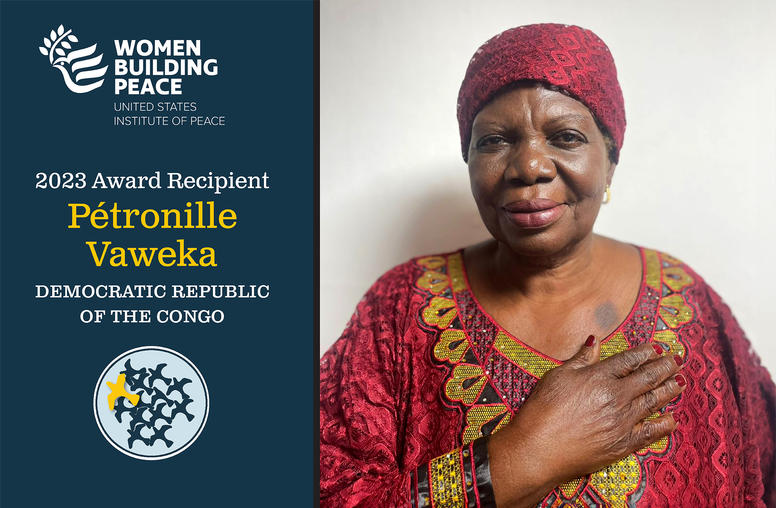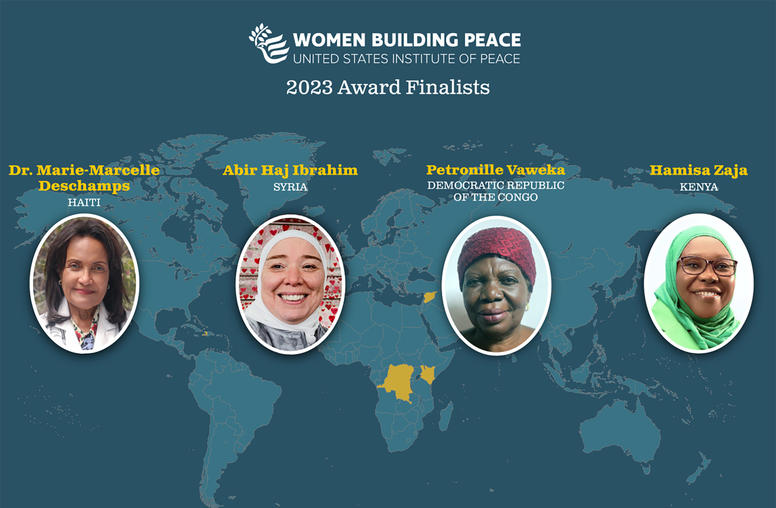United States Institute of Peace Translating “Peace” into Foreign Languages
In a sign of increasing penetration of peace-related materials into war-torn countries like Afghanistan, the United States Institute of Peace (USIP) is increasing its translation and dissemination of works into Dari and Farsi, for local usage within zones of conflict.
For Immediate Release - September 4, 2009
Contact: Lauren Sucher, 202/429-3822
(Washington) - In a sign of increasing penetration of peace-related materials into war-torn countries like Afghanistan, the United States Institute of Peace (USIP) is increasing its translation and dissemination of works into Dari and Farsi, for local usage within zones of conflict. The USIP edited and published book “Combating Serious Crimes” is now available in Dari and printed by an Afghan book printer. The Dari version of the book will be put online along with the English and Nepali versions.
“This is a major milestone for USIP,” said Tara Sonenshine, executive vice president of the Institute. “The Afghan recipients were very happy to get something that had been translated and is pertinent to their work.” The book has received high praise from Afghan Ministers and Supreme Court Justices and others in the field of rule of law.
According to one Afghan government leader, “We've been drafting a new criminal procedure code for the last year and a half. USIP has been an important partner for us in this effort from the beginning, and having this Handbook in Dari will be of great help to my department as we complete the task. There are too few materials prepared in our local languages, so we are very grateful to have such an important and helpful book translated into Dari."
About the Book:
“Combating Serious Crimes” fills a major gap in the literature on efforts to rebuild societies that have been badly damaged by violent conflict. Drawing on firsthand experience in tackling organized and other destabilizing crime in Kosovo, Bosnia, Afghanistan, Iraq, and elsewhere, it distills that practical, hard-won knowledge into lessons and guidance for policymakers and practitioners who must face similar challenges. More than forty seasoned practitioners--judges and generals, prosecutors and human rights activists, scholars and government officials from across the world--participated in the discussions that generated the broad guidelines and more specific prescriptions presented in this handbook.
In addition, the Institute has just launched a Farsi/Dari version of its online conflict analysis course that is used by individual peacebuilders around the world, as well as at the Foreign Service Institute and elsewhere in the State Department, West Point, the Army’s Civil Affairs Qualification Course, numerous universities, and comparable institutions overseas. See the course online at: http://www.usip.org/education-training/courses/certificate-course-in-conflict-analysis/farsi.
More information on USIP’s work in Afghanistan is online at http://www.usip.org/countries-continents/asia/afghanistan.
USIP has also produced the first-ever peace education textbook, in Urdu, that will be used in madrassas in Pakistan. Currrently, senior teachers are being trained in the implementation of the book’s curriculum. There are also plans to translate the book into Pashto, Dari and Sindhi.

